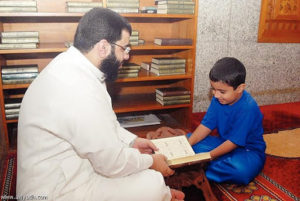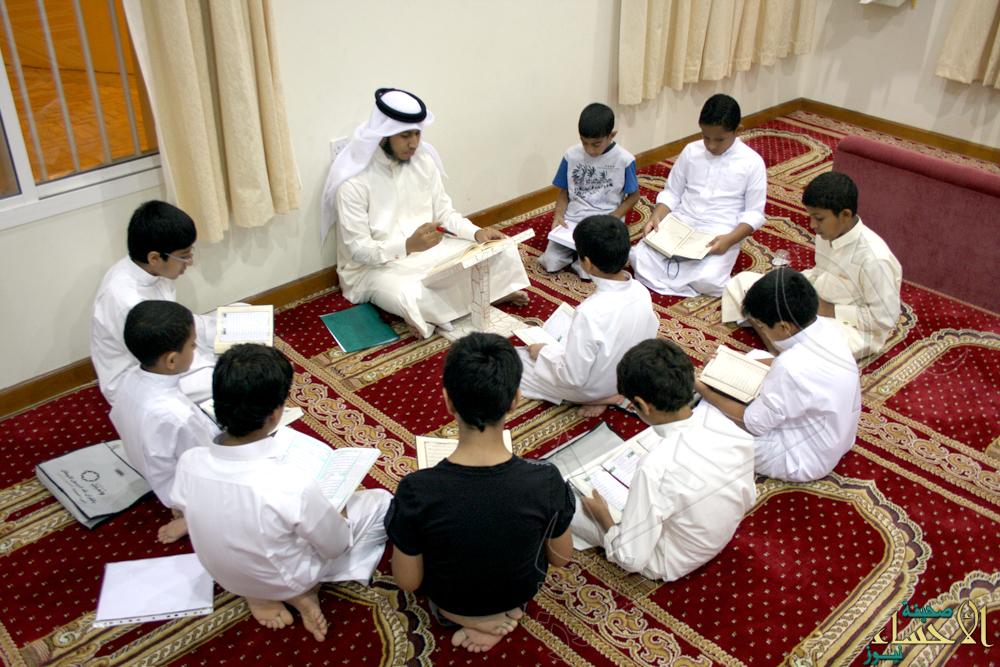One of the most challenging things that Muslim parents can face in their children’s Islamic education is teaching their kids how to read the Qur’an in The correct way, and How can they get a good Quran teacher?
Many Muslims discover later that he has many errors in reciting the Qur’an they then went through a grueling process to fix the Qur’an reading.
When I signed up for my first tajweed (the science of Qur’anic recitation) class in my freshman year of college, I went in there with a furious determination.
My goal was that I would become so good at reading the Qur’an that I’d be able to teach my own kids (biological and/or adopted) one day and never subject them to an unqualified Qur’an teacher
And It was my dream to get a good Teacher
What to Look for: (Quran teacher needed)
Table of Contents
Toggle1. Recitation correctness:
The main question you have to ask is, does this Qur’an teacher recite the Qur’an correctly? When you’re going in to meet a teacher for the first time, make sure you conduct a basic recitation test. My suggestion is to ask them (1) to recite a surah (from memory) they are comfortable with/have memorized, (2) to read something that they are not that familiar with (what I call “cold reading” from the book; but this will be less or more valid depending on whether or not the Quran teacher has memorized the Qur’an), and then ask them (3) to recite another surah they are comfortable with but this time at a speed half as fast as they had been reciting the first two tasks.
If you don’t have much of a Qur’an reading background, then something to try is to record the Qur’an teacher reciting Qur’an according to the suggested test above and have a couple of people check his or her recitation on your behalf.
Approach your local imam and some friends or family members who have a better background than you do (it’s also a good idea to have someone from a different cultural or ethnic background listen to the Qur’an teacher!) A caution–don’t just ask the teacher for a recording because the teacher might try recording multiple times to select the best one. You do the recording yourself! Always ask the teacher if it is alright for you to have someone check their recitation, and make sure to operate within their boundaries (the female Qur’an teacher may only want other women to hear her recitation, for example.)
Maybe this sounds a little crazy–but keep in mind, this person will teach your kids how to read the Qur’an and your kids will most likely not be any better than their teacher is.
2. Ability to Teach:
Just because someone can read the Qur’an, even perfectly read the Qur’an, does not mean that he or she is capable of teaching others how to do the same. You have to ask, does this teacher have the ability to teach Qur’an reading (and/or basic memorization)? Consider what it takes to be a teacher–having the ability to explain something in more than one way, knowing when to push a student and when to support a student, being patient and caring, and understanding how to connect lessons to each other. There are more technical types of teaching-related things (like skills, knowledge, and sound practice) and softer character/personality types of things (like being kind, being assertive, and managing undesirable behavior in a positive way.)
A way to gauge your child’s perspective Quran teacher’s ability to teach is to either do a handful of trial sessions (two to four should be enough for you to make a judgment call). These trial sessions can be you sitting in on your kid’s lessons, you sitting in on another student’s (or multiple students) lessons, or you asking the teacher to treat you as a student and see how you like the teaching style being used.
you can get a free trail class from here:
Again, this might sound a little overboard, but we don’t take our kids’ Qur’an education seriously enough.
Many times Quran teachers don’t have formal teaching training for kids, don’t even want to teach, or simply don’t know how to teach. The last thing you want is to demoralize your kid when it comes to learning how to read the Qur’an by sticking them with a horrible Quran teacher. Whether it’s shouting, losing his or her temper, hitting (do Quran teachers really still do that…?), or any other negative personality trait, your kid will probably be terrified of the teacher or start to resent him or her. Just compare your kid’s school teacher (if you’re not homeschooling your kids) to the Qur’an teacher on basic things like personality. You don’t want the kid to have a teacher in the public elementary school who gives out stickers for excellent work but have a Qur’an teacher who yells or screams every time the kid makes a small mistake.
You want to protect your kids from a teacher who will make them feel stupid or incapable of learning to read or recite.
Reading (in any language) is a challenging skill to learn, not to mention reading the Qur’an which is like reading a book + reading music at the same time + performing the recitation with proper pronunciation and pacing. If the Qur’an teacher is incapable of guiding your kid through learning to read, then the kid will feel frustrated that he or she is not getting it, when in fact it is actually the teacher’s fault (if not entirely, at least two-fold.)
3. Moral Uprightness:
Now, this is a hard thing to judge. It’s problematic, actually, to look too deeply into without a good reason, generally speaking. But I believe that a Quran teacher should be an example of basic moral goodness. This means doing just the basic things–praying regularly, not cursing or using profane language, being trustworthy with business and other money issues, not having a loose tongue in terms of gossiping, and being involved in other social ills. This is difficult to explain, but just imagine if your kid’s Qur’an teacher smoked or was in an illicit relationship or was behind spreading a vicious rumor in the community. Of course, no one is perfect and Qur’an teachers are not angels. But especially with younger kids, it’s important for them to see their Qur’an teacher as affected by the light of the Qur’an in some way.

Watch some of our educational lessons on YouTube
Common Mistakes:
Beautiful recitation and the ability to read quickly do NOT mean correct recitation and also not means this is a good Quran teacher
Don’t get lost in the dulcet melodies of a reciter’s voice. Don’t just assume reading the Qur’an means reading the Qur’an quickly or confidently. Some people can read the Qur’an beautifully, but do so at the expense of correct recitation and some people can read the Qur’an quickly, but also at the expense of correct recitation.
Although these might not seem great, there is no problem if a person can read the Qur’an perfectly but it sounds like nails on a chalkboard or they read slowly. These two measures aren’t relevant to the quality of the recitation in terms of correctness.
Having Private Qur’an Lessons in Private Settings:
A huge problem that needs to be addressed in the Muslim community is predatory behavior which can literally happen with any person and in any context.
Sending your kid to the Qur’an teacher’s house to have private lessons (or even semi-private lessons) is not a good idea. Qur’an classes should be hosted in public spaces, like the masjid’s prayer hall or a classroom with many students inside of it, or in another space in which you have constant access to and the ability to monitor, such as at your home in an open room constantly in your sight.) Many families use online Qur’an classes (I teach only online through video calls at the moment) out of convenience or lack of teachers nearby.
Pairing Teachers and Students of Opposite Genders:
Although this is not a black-and-white issue, I personally believe that once your child has reached Islamic maturity/puberty, it is important to make sure that the Quran teacher is of the same gender as your child. Although having a teacher of the same gender does not ensure your child’s safety in any way, I do believe that it is most appropriate to maintain gender segregation between Qur’an teachers and their students. Here are a few reasons that lead me to this opinion: I never feel comfortable reciting in front of men because I have to worry about embellishing my recitation with any sort of melodic beauty
it is easier to communicate about current circumstances (like menstruation) that may affect Qur’an reading and because there is a lot of mimicking that the teacher expects the student to do it is easier for this to occur in same-gender pairings (because of things like tonality and pitch of the voice.
In conclusion:
Perhaps now you know a little about how to get a good Quran teacher?
We hope we were able to help you with that and we thank you for visiting our website




